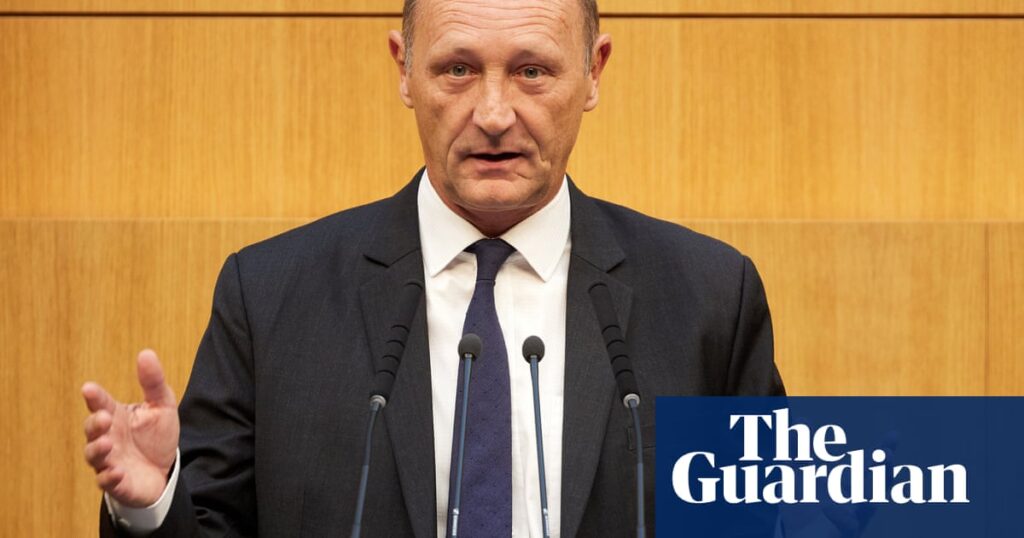
Austrians have expressed outrage over revelations that far-right MPs are among the highest earners in the country’s parliament, accusing them of hypocrisy for their lucrative side jobs. The MPs, from the anti-immigration Freedom Party (FPÖ), which topped the polls in the September general election, have been criticized for their substantial supplementary incomes.
A recent report based on mandatory income declarations for 2024 disclosed that FPÖ members are leading in additional earnings, with seven MPs receiving more than €12,000 (£10,400) monthly as notaries, lawyers, and business executives, on top of their parliamentary salary of about €10,000. The data revealed that far-right MPs had an average of 1.9 additional income sources, surpassing all other parliamentary colleagues.
Public reaction has been swift and critical. One Facebook user commented, “Do they have enough time for such high-paying side jobs? How do they manage? As someone who in an average-paying job always tries to give 100%, and is suffering from budget cuts, I feel mucked around.” Another social media user remarked, “Preaching water and drinking wine! Sure, the party of the ‘average Joe’.”
Political Fallout and Accusations of Hypocrisy
The report has provided ammunition for political opponents of the FPÖ. Nico Marchetti, the general secretary of the co-ruling People’s Party (ÖVP), seized the opportunity to question the FPÖ’s credibility. “For a party whose business model is kicking off envy debates and presenting itself as the mouthpiece of the little guy and the opponent of the ‘system’, it’s fair to ask about credibility,” he stated.
Klaus Seltenheim of the Social Democrats (SPÖ), junior partners in the government, echoed these sentiments, highlighting the “hypocrisy of the blue troops,” referring to the FPÖ’s party color. The ÖVP had previously formed Austria’s first three-way coalition with two smaller parties in February to prevent the FPÖ from gaining power, despite its electoral success.
FPÖ’s Response and Broader Implications
Despite the criticism, the FPÖ has dismissed the accusations as a distraction from the government’s failures, citing issues like record debt, high inflation, and rising unemployment. The party insists that all its MPs’ additional earnings are legitimate and above board.
The biggest earner among the FPÖ MPs is Axel Kassegger, who holds nine paid engagements beyond his parliamentary duties, including management roles at two firms and a position on the supervisory board of the regional power company Energie Steiermark.
While the FPÖ faces scrutiny, it is worth noting that other parties also have representatives in the top category of the parliamentary rich list, including members from the conservative ÖVP, the pro-business New Austria and Liberal Forum (NEOS), the Greens, and the Social Democrats.
Historical Context and International Parallels
This controversy is not the first to involve the FPÖ. The party has a history of scandals, including accusations against former leader Heinz-Christian Strache of misusing public funds for personal luxuries. Strache has denied these allegations, but the affair has cast a long shadow over the party, particularly as it allegedly occurred under the watch of current FPÖ chief Herbert Kickl.
Meanwhile, similar issues have surfaced in Germany, where co-leaders of the far-right Alternative für Deutschland (AfD), Alice Weidel and Tino Chrupalla, reportedly secured a doubling of their parliamentary allowances. This move has sparked debate over the financial practices of far-right parties across Europe.
According to T-Online, Weidel and Chrupalla now receive an additional €12,000 monthly allowance, up from €6,000, on top of their nearly €12,000 MP salaries.
Looking Ahead: Political and Public Repercussions
The scrutiny of FPÖ lawmakers’ earnings and the broader questions of political integrity and transparency are likely to persist. With one in three Austrians reportedly supporting the FPÖ, the party’s handling of these allegations could significantly impact its future electoral prospects.
As Austria grapples with economic challenges and political divisions, the debate over MPs’ earnings and the credibility of political parties remains a potent issue. Observers will be watching closely to see how the FPÖ navigates these turbulent waters and whether it can maintain its support base amid growing criticism.






